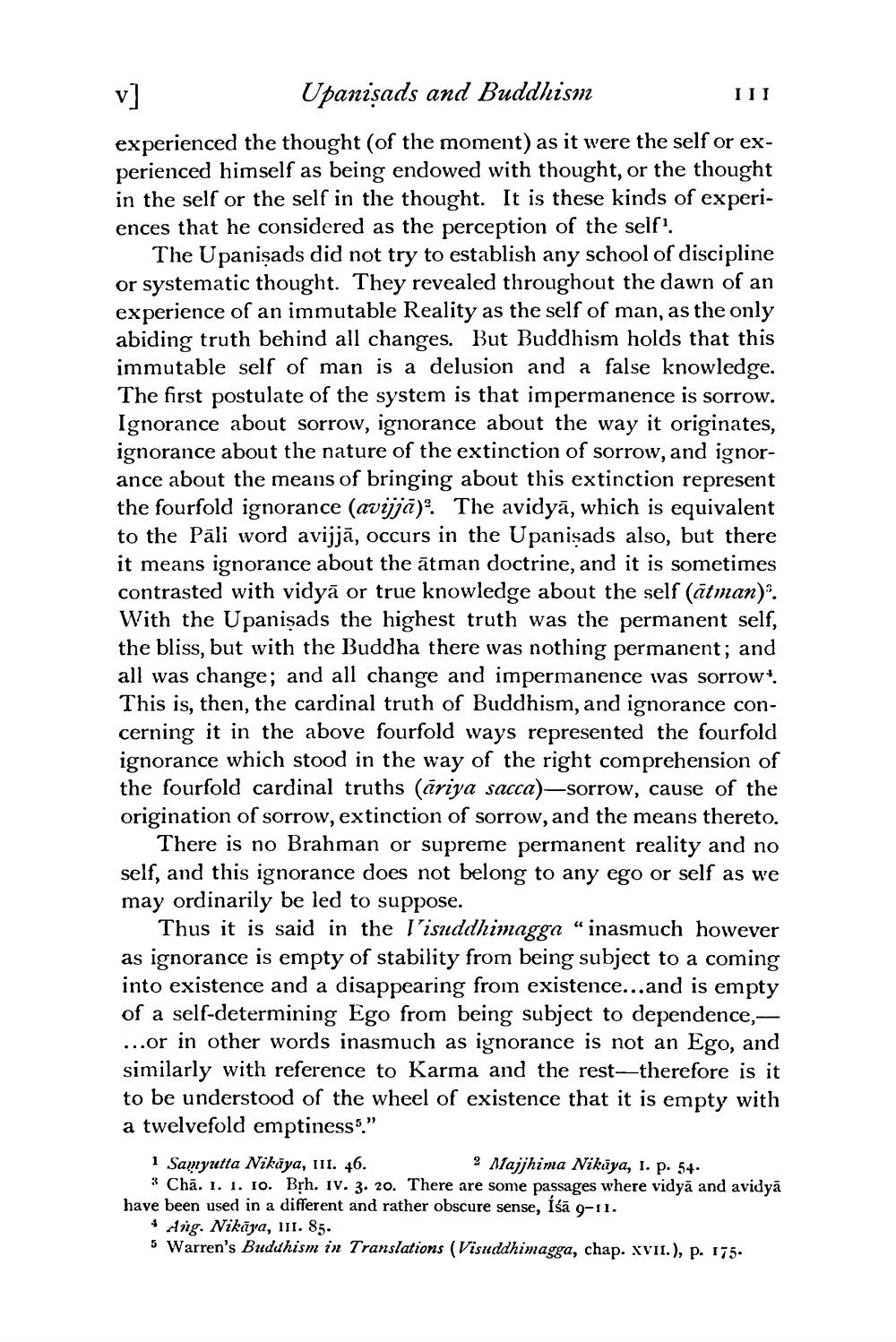________________
Upanişads and Buddhism
III
experienced the thought (of the moment) as it were the self or experienced himself as being endowed with thought, or the thought in the self or the self in the thought. It is these kinds of experiences that he considered as the perception of the self?.
The Upanisads did not try to establish any school of discipline or systematic thought. They revealed throughout the dawn of an experience of an immutable Reality as the self of man, as the only abiding truth behind all changes. But Buddhism holds that this immutable self of man is a delusion and a false knowledge. The first postulate of the system is that impermanence is sorrow. Ignorance about sorrow, ignorance about the way it originates, ignorance about the nature of the extinction of sorrow, and ignorance about the means of bringing about this extinction represent the fourfold ignorance (avijja)? The avidyā, which is equivalent to the Pāli word avijjā, occurs in the Upanişads also, but there it means ignorance about the ātman doctrine, and it is sometimes contrasted with vidyā or true knowledge about the self (ätman)'. With the Upanisads the highest truth was the permanent self, the bliss, but with the Buddha there was nothing permanent; and all was change; and all change and impermanence was sorrow This is, then, the cardinal truth of Buddhism, and ignorance concerning it in the above fourfold ways represented the fourfold ignorance which stood in the way of the right comprehension of the fourfold cardinal truths (āriya sacca)-sorrow, cause of the origination of sorrow, extinction of sorrow, and the means thereto.
There is no Brahman or supreme permanent reality and no self, and this ignorance does not belong to any ego or self as we may ordinarily be led to suppose.
Thus it is said in the l'isuddhimagga “inasmuch however as ignorance is empty of stability from being subject to a coming into existence and a disappearing from existence...and is empty of a self-determining Ego from being subject to dependence, - ...or in other words inasmuch as ignorance is not an Ego, and similarly with reference to Karma and the rest—therefore is it to be understood of the wheel of existence that it is empty with a twelvefold emptiness." 1 Sayutta Nikaya, III. 46.
? Najjhima Nikīya, I. p. 54. 3 Chā. 1. I. 10. Bph. IV. 3. 20. There are some passages where vidyā and avidyā have been used in a different and rather obscure sense, Išā 9-11.
* Hig. Nikāya, III. 85. 5 Warren's Buddhism in Translations (Visuddhimagga, chap. XVII.), p. 175.




